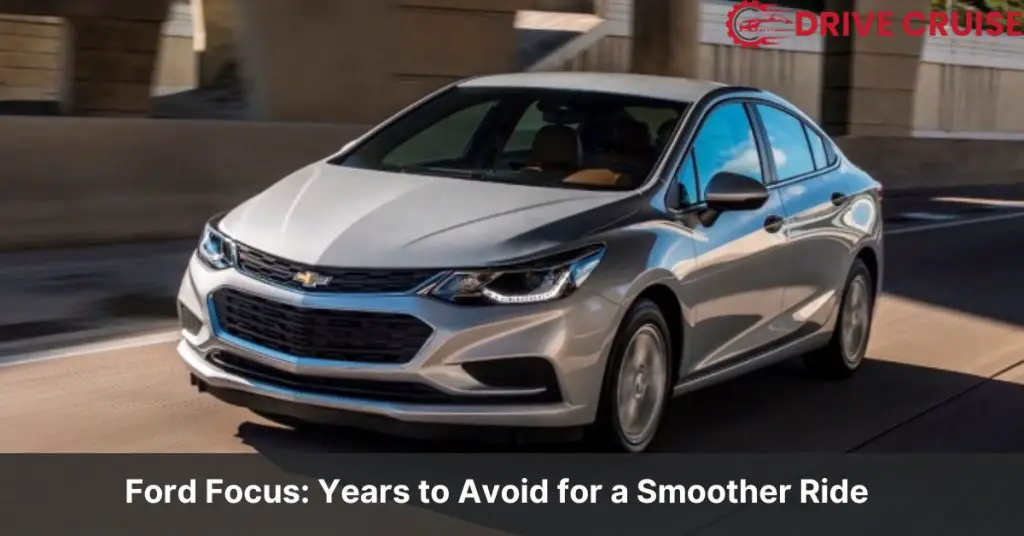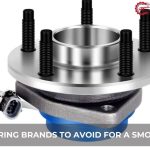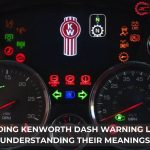If you’re in the market for a used Ford Focus, it’s important to know which model years to avoid. While the car has a reputation for being practical, fuel-efficient, and fun to drive, some years have had more reliability issues than others. In this guide, we’ll take a closer look at which Ford Focus years to avoid and why.
The Ford Focus has been a popular compact car for decades, and for good reason. It’s been praised for its comfortable ride, agile handling, and fuel efficiency. But not all model years are created equal. Some have been plagued by transmission problems, engine issues, and other reliability concerns. By knowing which years to avoid, you can save yourself time, money, and frustration down the road.
So, is the Ford Focus a good car? Overall, yes. But like any car, it’s important to do your research and choose the right model year. In the following sections, we’ll dive deeper into the Ford Focus reliability record and highlight the specific years you should avoid.
Why Consider Certain Ford Focus Years Less Desirable?
When searching for a used Ford Focus, it is important to consider certain model years less desirable due to a variety of factors. In addition to year-specific issues, general factors such as budget, parts availability, and technological advancements can all play a role in determining the reliability of a used car.
Budget
While older Ford Focus models may be cheaper upfront, they may require more maintenance and repairs in the long run. This is especially true for models with known issues, such as the 2000 and 2001 Ford Focus, which have had problems with the engine, transmission, and other interior accessories. Therefore, it is important to consider the long-term costs of owning a used Ford Focus before making a purchase.
Parts Availability
Parts for less common or older Ford Focus models may be harder to find or more expensive. This can be a major issue if you need to replace a part that is essential to the car’s operation, such as the transmission or engine. It is important to research the availability and cost of parts for a specific model year before making a purchase.
Technological Advancements
Features and safety technology have improved significantly in recent years, making newer Ford Focus models more desirable. For example, the 2018 and 2017 Ford Focus models have received high ratings for safety and reliability, and come equipped with features such as a rearview camera and advanced driver assistance systems. If you are looking for a car with the latest safety and technology features, it is important to consider newer Ford Focus models.
Ford Focus Years to Approach with Caution
If you’re in the market for a used Ford Focus, it’s important to know which years to avoid. Based on common reported problems and reliability ratings, these Ford Focus years are generally considered less desirable:
2007-2008 Ford Focus
Transmission Issues:
The PowerShift dual-clutch transmission (DCT) used in some models experienced premature clutch wear, shuddering, and hesitation during gear changes. These problems can be quite expensive to repair, so it’s best to avoid these years if possible.
Electrical Problems:
Electrical system faults could lead to various issues like malfunctioning instrument cluster, power window failures, and more. These problems can also be costly to fix, so it’s important to keep them in mind when considering a 2007-2008 Ford Focus.
2012-2015 Ford Focus
PowerShift DCT Concerns:
While some improvements were made, these model years might still experience PowerShift DCT problems like those mentioned above. This transmission issue can cause significant issues with the car’s performance and can be expensive to repair.
Steering Issues:
Some models faced potential concerns with the electric power steering system, including a loss of power steering assist or abnormal noises. These issues can be quite alarming and can lead to safety concerns, so it’s best to avoid these years if possible.
Alternative Ford Focus Years to Consider
If you’re looking for a Ford Focus but want to steer clear of the years with known issues, there are a couple of options to consider. While not completely without potential issues, these Ford Focus years generally receive better reliability ratings.
2009-2011 Ford Focus
The 2009-2011 Ford Focus represents a transition period for the model, potentially offering better reliability compared to the earlier 2007-2008 models. However, it’s still important to check for specific problems before making a purchase. These years tend to be more reliable than some of the other options available.
2016+ Ford Focus
Significant improvements were made to the PowerShift DCT in the 2016+ Ford Focus models, making them more reliable than some of the earlier versions. If you’re looking for a newer model with better reliability ratings, this could be a good option to consider.
While these alternative Ford Focus years may not be perfect, they offer a better chance of avoiding some of the common issues that plague other model years. As always, it’s important to do your research and inspect any potential purchase thoroughly before making a decision.
Additional Tips When Buying a Used Ford Focus
When it comes to buying a used Ford Focus, there are a few additional tips that can help you make a more informed decision. Here are some things to consider:
Vehicle History Report
Before making a purchase, it’s important to invest in a comprehensive vehicle history report. This report can uncover past accidents, repairs, and maintenance records. It can also alert you to any potential red flags that may not be immediately apparent during a test drive. By reviewing the vehicle history report, you can make a more informed decision about whether or not to move forward with the purchase.
Pre-Purchase Inspection
Another important step is to take the car to a qualified mechanic for a pre-purchase inspection. This can help you identify any potential problems that may not be visible during a test drive. A mechanic can check the engine, transmission, brakes, and other key components to ensure that the car is in good condition. By investing in a pre-purchase inspection, you can avoid costly repairs down the road.
Focus on Specific Needs
When shopping for a used Ford Focus, it’s important to consider your specific needs. Think about your priorities – features, mileage, budget – to find a Focus that best suits your needs. For example, if you’re looking for a reliable car for commuting, you may want to focus on models with good fuel economy. If you need more space for passengers or cargo, you may want to consider a hatchback or wagon. By focusing on your specific needs, you can find a used Ford Focus that meets your requirements.
Conclusion
In summary, the Ford Focus is a popular car that has been produced for many years. However, there are some years that you should avoid due to various issues. By doing your research and being aware of these issues, you can make a more informed decision when buying a used Ford Focus.
As we have seen from our research, the 2012 and 2013 Ford Focus models are among the worst years to avoid due to their reliability issues. Additionally, the first generation Ford Focus (1998-2004) may not be the most reliable if you are not careful. On the other hand, the second generation Ford Focus (2004-2011) and the third generation Ford Focus (2012-2018) have generally better reliability ratings.
It is also important to note that the Ford Focus was discontinued in 2018, which means that the 2018 model is the last year of the Ford Focus. If you are considering buying a Ford Focus, keep this in mind and conduct thorough checks to ensure that you are getting a reliable car.
Related Posts:
- Can You Drive a Right Hand Drive Car in the US? Everything You Need to Know
- Car Overheating: Causes and Solutions for Normalization
- Chassis Control System Error: Causes and Solutions
- Ford Focus: Years to Avoid for a Smoother Ride
- How to fix chassis control system fault: A beginner’s guide
- How to Fix Tire Cupping: Tips and Tricks for a Smoother Ride
- Lexus RX 400h Problems: What You Need to Know
- Nissan Forward Emergency Braking Warning Light Reset: A Quick Guide
- Nissan Qashqai Malfunction Warning Light: What You Need to Know
- Toyota Corolla Gear: A Guide to Understanding Your Car’s Transmission
- Yokohama Geolandar AT G015 Review: A Reliable All-Terrain Tire







